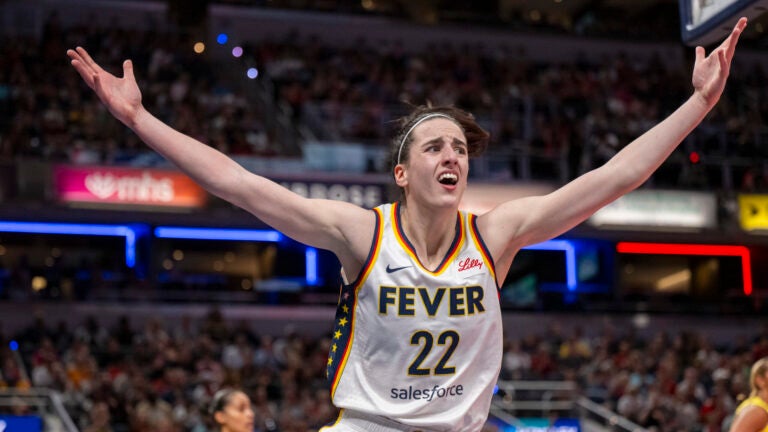Sports
Two of ESPN’s biggest stars – Stephen A. Smith and Pat McAfee – ignited an internet frenzy after addressing the “Caitlin Clark effect.”

The media storm that has followed Caitlin Clark since April, when the former Iowa Hawkeyes basketball star was selected first overall in the 2024 WNBA Draft, has become a full-blown tornado.
Clark, who was catapulted into stardom during her senior season at the University of Iowa, has dominated headlines through her first full month in the pros. The NCAA’s all-time leading scorer has helped bring attention to a league that has long been excluded from mainstream sports media.
The sudden flood of storylines – mostly surrounding Clark and her rumored ‘rivalries’ with other players – has fueled a toxic narrative, however. And on Monday, after Clark’s Indiana Fever faced off against the Chicago Sky in a competitive matchup, tensions beyond the court reached a peak.
Two of ESPN’s biggest stars – Stephen A. Smith and Pat McAfee – separately addressed the “Caitlin Clark effect,” the idea that the 22-year-old is single-handedly responsible for America’s newfound obsession with women’s basketball.
During a segment on McAfee’s “The Pat McAfee Show,” the host discussed Clark’s impact on the league in comparison to other prominent rookies like Cameron Brink and Angel Reese.
“I would like the media people that continue to say ‘this rookie class, this rookie class, this rookie class’. No, just call it for what it is, there’s one white [expletive] for the Indiana team who is a superstar,” McAfee said.
“Is there a chance that people just enjoy watching her play basketball because [of] how electrifying she is, what she did, what she stood for, how she went about going what she went for? Maybe,” McAfee continued. “But instead, we have to hear people say that we only like her because she’s white, and she’s only popular because the rest of the rookie class is doing what they’re doing.”
The puzzling statement of support by McAfee (who, in fact, is one of the “media people”), caused a public outcry. His opinion, while controversial for some, was overshadowed by his poor choice of language.
The former NFL player later issued an apology on X, saying that he regretted his use of the offensive term “no matter the context,” and that he has “way too much respect for [Clark] and women to put that into the universe.”
On the same day, Smith took his shot at addressing the media’s obsession with Clark on “First Take.”
Over the course of a 40-minute segment, in which Smith and panelist Monica McNutt disagreed about the context of Chennedy Carter’s flagrant foul on Clark Saturday night, Smith said that nobody “talks about the WNBA and Women’s sports more than ‘First Take.’”
“Stephen A., respectfully, with your platform, you could have been doing this three years ago if you wanted,” McNutt responded.
Her rebuttal elicited a handful of “wows” from Smith, and later, a minute-and-a-half long rant on his podcast about all he’s done to advance female journalists’ careers.
McNutt and Smith are back on air Tuesday, seemingly having mended their working relationship enough to avoid another argument on national television.
And as the Caitlin Clark media tornado temporarily winds down, sports media professionals everywhere are left with an important reminder – choose your words wisely.
Get the latest Boston sports news
Receive updates on your favorite Boston teams, straight from our newsroom to your inbox.





